|
Do you know the feeling I'm talking about? That emptiness inside – the feeling that something important is missing? Maybe as you've gotten older, you've developed a nagging suspicion that the emptiness might be getting bigger, or at the very least, less easy to ignore? If you're like me and many others, you've had moments when you've felt that emptiness quite sharply. It's a difficult experience and it's common to go to great lengths to distract yourself from having to acknowledge it. The fact of the matter is that it takes courage and bravery to face the emptiness head on. You know on an intuitive level that exploring the roots of this feeling could become overwhelming. It has the power to either paralyze you or shake up your life, catapulting you toward big changes – and change, for many of us, can be quite frightening. The goal of this series is to offer insight into what is missing and how to cultivate it in your life. But before I do that, I think it is extremely important (and all too frequently overlooked) to give voice to the fears and underlying causes behind the emptiness I've described. With this first part of my series, I invite you to step gently out of your comfort zone and begin to explore the fears buried beneath that feeling of emptiness. It isn't always easy, but it is such an important first step on your journey! Spoiler alert: Growth happens outside of your comfort zone. I want to encourage you to challenge yourself to become more comfortable with discomfort. One of the most important pieces of insight I could ever offer you is that there is power in getting to know your fears. There is power in acknowledging the emptiness and taking the time to learn about it. And since I am fully aware of how hard it is to do just that, it seems only fair to me that I offer you the best tools and support I know along the way.
Does one of these scenarios resonate with you? If I'm honest, I see parts of myself in all four of them. Maybe you do, too. So what is the common denominator here? While there are some similarities on the surface – things like feelings of guilt, dissatisfaction, disillusionment, unmet expectations, and frustration – it is actually what lies underneath these feelings that powerfully connects these different life stories. Effectively, each scenario looks outward for what's missing (a path, an answer, an experience, a person, etc.) when in fact the emptiness can only be filled from the inside out. The scary truth is that when you've tried these other paths, you eventually come to the realization that the only option remaining is filling up the emptiness with You. And ... are you enough? With all of your flaws and mistakes and lacks, you come face to face with a terrible sense of shame and inadequacy. How can you possibly be enough? And if you aren't enough, if you just don't have what it takes to fill up the emptiness, doesn't that mean that the emptiness will ultimately be permanent? That's a heavy, profound fear to face! No wonder we go to such great lengths to avoid acknowledging it! So let's be clear about the vicious cycle that can develop around these fears. Brace yourself. It is one hell of a merry-go-round! At some point, you start to notice that something essential is missing from your life. You feel dissatisfied because the life you've been living isn't as fulfilling as you would like. You can't help but think about why that's the case, which leads to a second layer of dissatisfaction – those deeper feelings of betrayal, helplessness, confusion, guilt, frustration, or disillusionment. If you muster up the nerve to look even deeper, you start to experience a sense of hopelessness because you're painfully afraid that you aren't enough to change things for the better. So then you can't help but feel miserable about being resigned to the possibility of being unfulfilled for the rest of your life. You try hard to ignore it altogether and live as best you can, but eventually that nagging feeling starts coming back - something's missing. And the cycle repeats. Wow. That's unbearably depressing, right? This isn't any way to live a life! And yet this is exactly what so many of us are doing day in and day out because we don't know how to release ourselves from the cycle. Instead, we try to push those difficult feelings way down below the surface or go to other great (and sometimes destructive) lengths to avoid having to feel them. Part Two of this series explores the unhealthy, but understandable ways in which we try to cope with this cycle. But there is hope, counterintuitive as it might be. The way to assuage these fears and start filling the emptiness from the inside out is by turning toward your fear rather than running from it. If you set a goal of slowly becoming more comfortable with discomfort, you become able to sit still long enough to learn more about the source of your fears and how to ease them. Working one day at a time to become more compassionate and less reactive to your fear strengthens your wisest mental muscles and allows you to start questioning the voice inside that says 'You are not enough". A significant part of the coaching experience is helping people work through their limiting beliefs. That process is ultimately a life-long journey, one that I attend to in my own life every day. This blog series isn't designed to outline that journey in detail, but I can't in good conscience simply suggest what you need to do without also offering you some assistance on how to do it. With that in mind, I've included a YouTube video at the bottom of this post featuring and important talk on freeing yourself from fear. It is presented by world-renowned psychologist, mindfulness leader, and author Tara Brach. It is my hope her words and insights resonate with you as much as they do with me and others across the globe. In conclusion, it is essential to form a healthy relationship with fear so that it doesn't paralyze you, send you into a destructive tail-spin or control you by forcing you to live a life of hugely risk-averse limitation. Fear is asking each of us to acknowledge it, accept it, and hear it, and we must learn to do so as lovingly and compassionately as we can. There's no denying that being able to do this is a long-term process and requires intention and discipline. But when we come to appreciate that the emptiness and fear is actually a catalyst for some seriously positive change, when we slowly begin to live from a place of "I am enough", we experience less of "the void". We start to fill up the emptiness with self- knowledge and self-acceptance. These are big parts of what has been missing all along. The next time you become aware of that nagging empty feeling inside, resist the temptation to ignore it or suppress the feelings and thoughts that come with it. Instead, use it as an opportunity to be still and explore the discomfort. Notice where the discomfort is in your body. Gently question the message of unworthiness your discomfort may be sending you. Trust yourself to be strong enough to handle your fear, and most of all, trust that you ARE enough to fill up the emptiness. P.S. Keep your eyes open over the next few weeks for Part Two of this series: The Unhealthy Ways We Try To Cope.
0 Comments
I believe there are facets of the human condition that each of us should make the time to explore over the course of our lives. I believe that lifting our most private and vulnerable selves out of our murky inner depths for examination is essential for creating the sustainable sense of peace and fulfillment we acutely desire. Speaking from my own experience, it has been a privilege and an honor to bear witness and provide comfort to people from all walks of life in their times of emotional crisis. The profoundly intimate and raw conversations that unfold in these moments have been some of the most meaningful and illuminating conversations of my life. I know from my own experience and the experiences of many others that coming to terms with a lingering and corrosive sense of emptiness is a deeply nuanced, personal, and frightening struggle for most of us. As such, it deserves far more than a casual one-off article filled with platitudes serving up a quick hit of superficial wisdom and sending us merrily on our way. Instead, I invite you to join me as I attempt to thoroughly explore the very heart of the matter so that all of us can better understand what to make of it – how to live with it, learn from it, and grow from it. Here's a brief look at what each of the four parts in the series will examine: Part One – Why are we so afraid? I start by examining the connection between the sense that something really important is missing from our lives and buried feelings of shame and unworthiness, feeling as though life is utterly beyond our control, and feeling let down or trapped by life. These feelings are understandably frightening and the instinctive reaction for many of us is to go to great lengths to avoid having to actually feel them. The catch is, however, that the best way to assuage these fears is by turning toward them rather than running from them. If we set a goal of slowly becoming more comfortable with discomfort, we become able to sit still long enough to learn more about the source of our fears and how to ease them. Part Two – What Running Away Looks Like Every single one of us has developed a way of responding to various fears. Sadly, however, our culture is not particularly adept at teaching us how to react in healthy ways. Instead, we do the very best we can with little guidance, poor examples, little personal insight, and a lot of guess work. Not surprisingly, this hasn't served us very well. Part Two in this series explores the unhealthy ways we try to 'fill up' the emptiness in our lives including the urge to stay busy at all costs, the need for constant change, a drive to achieve more, own more, or do more, the need to fill the void with people (especially 'the one'), or turning to addiction in a desperate effort to induce numbness as a replacement for fear. When these coping mechanisms become too exhausting or impossible to sustain, they can lead to terrible depression, hopelessness, or even suicide. Thankfully, as a culture, we are beginning to learn how to replace negative strategies with more positive, effective, and lasting ones. Part Three – Healthy Ways To 'Fill Up' And now to the more uplifting stuff! Part Three delves into healthy, long-term strategies for cultivating a deep sense of contentment. In addition to offering tools and exercises for fostering a deeper sense of meaning and purpose in your life, this segment also challenges you to look honestly at your expectations and your priorities in the context of the things we know lead to a life-affirming sense of fulfillment – meaningful relationships, living with a sense of purpose, cultivating empathy and compassion for ourselves and others, knowing how to draw personal boundaries, attending to our basic needs, and cultivating an ever deepening sense of gratitude in our day to day lives. Further, Part Three doesn't shy away from an extremely important truth: our feelings are in a constant state of ebb and flow. With that in mind, it is important to acknowledge that feelings of emptiness are impossible to permanently eliminate from our lives. Our goal, then, becomes to manage the feeling as it emerges and come to see it as a welcome reminder of the need for a personal realignment. Part Four – Don't Lose Hope The closing segment of this series highlights various ways to keep the ball rolling toward positive change. Addressing that nagging feeling of emptiness isn't an easy or a quick process, so it is important to put a structure in place for the challenges yet to come. Part Four shares resources for encouragement and support along with some basic exercises for helping you make deep and lasting progress toward understanding what is missing in your life and what to do about it. I am eager to share this series with you and am looking forward to the fantastic discussions I hope this series will spark! In the meantime, please know that I continue to believe in you and all that you are capable of being. Until the next time, remember to live your life as kindly and boldly as possible!
This past weekend I presented a workshop titled Working With Your Labels. At it's core, it was about creating, embracing, and nurturing one's sense of Identity. As important as that is to explore, in light of the current political and social climate, it seems more appropriate and relevant to write about the large-scale collective identities confronting us every day – some of which are intensely heartening, and some of which are deeply disturbing.
Identity, on both large and small scales, pulls the numerous and sometimes contradictory threads of experience, environment, belief, and personal character together into a cohesive sense of self. As an American citizen, I have always taken it as an article of faith that, woven proudly into the fabric of American Identity, is our nation's desire and ability (though flawed) to integrate diverse peoples into a cohesive population. The vehicle by which this has been accomplished is a precious reverence for the freedom to Be and Act as individual and equal pieces of the dazzling mosaic that is this country. Over the last year and a half, I have witnessed what, in the darkest of moments, feels like the fracturing of our American Identity. I have witnessed large fragments of our population galvanize around polarized and seemingly skewed positions on Economy, National Security, Climate Change, Health Care, Civil Liberties, Women's Rights, Education, Immigration, and more. The political and social issues of our time are indeed worthy and demanding of strong opinions, discourse, and debate. I feel strongly about many of these issues and voted accordingly. Yet, in the midst of loud rallying cries (and tweets) for 'Making America Great Again', I find myself endeavoring to make sense of what feels like an angry, reckless and alarming attempt to reorder our mosaic to the extent that it is no longer easily recognizable to me as American. Perhaps I, and many others, grossly underestimate the durability of the glue holding our mosaic together. Perhaps the noble principles of freedom and equality, along with a widespread practice of attempting to choose right over wrong will prove more resilient in the hearts of some of our politicians and citizenry than they appear to be at this moment. But, in the face of what appears to be the rapid diminution of these principles – no more strongly evident than in the actions and comportment of our highest elected official – I, along with many others, raise my voice in dismay. We are gravely concerned. None of us truly knows the tensile strength of our republic. We do not know our own breaking point. There is no measuring stick, save for hindsight after it is already broken. Make no mistake. Our greatness is being tested. We have been gravely tested before, multiple times. Our American Identity has survived those trials thanks, in part, to the sagacity of the authors of our Constitution and thanks, also, to its conscientious custodians from all walks of life. Our nation's past is undeniably checkered, but perhaps Winston Churchill said it best: "You can always count on Americans to do the right thing - after they've tried everything else." We, the present-day custodians of this republic, are being tested in unprecedented ways. Wise men and women who have lived through previous times of unrest, fear that, for the first time in our history, we may possibly break before we come around to doing the right thing. As the custodians of our great American Ideals, we are stubbornly, contentiously divided. We are crippled in our capacity to protect these ideals as a result. It becomes all the more alarming when, in the face of egregious, illegal, and unconstitutional Executive overreach, so many of our elected officials – the people to whom we've entrusted our Voice – remain silent. Yet my heart swells to see the spontaneous and repeated outpouring of resistance by so many - most recently, the unwillingness to stand idly by as safe, productive, decent, legal and long-term residents of the US are turned away at their very own doorstep. I am heartened by the Federal Judges and lawyers who, by perfectly legal means, curtailed some of the injustice being doled out by the Presidential Pen. I am deeply moved to recall the unparalleled harmonious demonstrations at the Women's March on Washington (and the solidarity of all the sister marches across the globe) as protesters swarmed the streets surrounding the official residence of our unashamed and unapologetic Objectifier in Chief. I am grateful for the numerous voices in political power beyond the halls of Congress who are speaking out when the line of reason has been clearly crossed. Fortified as I am by these acts of decency, I believe we must remain vigilant in these uncertain times. It is with loyalty to and belief in the American Identity I so love that I will strive to speak and act with integrity, wisdom, and courage. I entreat you to join me in choosing your words and actions wisely, not merely reactively or dismissively. We must work deliberately and persistently as exemplary advocates for the highest American ideals of freedom, justice, equality, democratic rule of law, fair representation, and innocence until proven guilty. We must exhort our elected officials on both sides of the aisle to rise to the challenge of these difficult times, just as we hold ourselves to that same expectation. We must act in a way that future generations will not praise our economic brilliance while making an example of our moral implosion. Let us restore ourselves to the greatness that made the United States a beacon of hope for millions of people around the world. This American mosaic we have so painstakingly crafted together, for which so many have sacrificed life and limb, is too precious to risk losing. Happy New Year and Welcome to 2017! As I write this, I welcome the familiar mix of excitement and relief at the notion of being able to start again with a clean slate – of being able to put the past behind me and look to a future "fresh, with no mistakes in it". (Wink to all the L.M. Montgomery fans out there!) With so many of us making obligatory New Year's Resolutions, I know I am not alone in connecting to the special energy of that clean slate feeling. I also know that it doesn't take long for the slate to suffer it's first handful of scuffs and dings, marring our resolve to hold on to that "make a change for the better" mentality! It is easy to get derailed, distracted, and discouraged. Getting off track is so common that we make bets about who in our circle of family and friends will either fall first or hold out the longest (where one month is setting the bar high)! But our intentions are so good! When was the last time you heard someone make a resolution with the desire to make his or her life worse? We make resolutions from a place deep within that knows what changes need to happen in order to feel more secure, happy, or fulfilled. This is noble! How dare we give up on this so easily?! With that in mind, my goal for this post is to help you meet those resolutions so that on New Year's Eve 2017, you're celebrating not just the arrival of a new blank slate, but the incredible, successful story you've written all over the old slate – scuffs, dings and all! Building A Framework for Success - 5 Ways to Help Yourself
I made the decision to become a life coach long before I started telling anyone about it. I had good reasons for keeping it to myself. I hadn't even begun my training. I needed to craft a business plan and hone in on how I could best be of service to my clients. I needed to know my plan was viable before announcing a big, and seemingly unexpected, career shift to the world. When the time finally came to share my vision with family and friends, I was braced for some interesting responses. And oh, they did not disappoint! It took a month for me to share the news with my 'inner circle' about starting a life coaching business. I am proud to have an eclectic group of friends and family and knew well that their reactions would be varied. True to form, the responses ranged from "That's SO perfectly you!" to a neutral "OK," to "Huh? Never heard of it," to "You're becoming a snake-oil salesman, I see." None of it really surprised me, but I admit, I was deeply grateful for the couple of dear friends who immediately wanted to sign up as my first clients. The fact that I wasn't the least bit bothered by the less than positive responses, however, was an affirmation that I was on the right path. Fear of judgment wasn't holding me back. Fear of failing wasn't holding me back. Fear of change wasn't holding me back. I was nervous, but I was also ready and excited to take the plunge! Readiness is a big life question for most of us at one time or another. Am I ready to get married? Am I ready to leave this job? Am I ready to be a parent? When we talk about being ready, often what we are really looking for is the reassurance that we will be OK, no matter what happens. So we prepare. We educate ourselves. We make contingency plans. But the fact of the matter always remains – we can never know the future with any certainty. Therefore, with any major life step we take, risk is involved. What, then, does it really mean to be ready for something? The answer to that question, of course, is different for everyone. There are some universal clues worth noting, however, in case they happen to pop up on your personal radar screen. The following list outlines five of those important signs. Feel free to share other signs of readiness in the comments section below!
As I wrap up this post, I invite you to take a moment to ask yourself an important question: If we can never be truly certain of the future, if we must rely only upon our best instincts and a little bit of faith, why do we continue to leap into the unknown? For my part, I think the answer is simple. We are gloriously curious creatures. We are also extremely resourceful, resilient, enterprising, hopeful, and optimistic. We are creative, innovative explorers! The traits that push us forward into the unknown are traits we have celebrated throughout all of human history. We are a race that comes equipped to face challenge. Indeed, many of our greatest achievements have come into being despite daunting odds.
The next time you find yourself waiting to feel completely ready for whatever might be on the horizon, remember this: If you wait long enough to feel 100% ready for anything, you've waited far too long. Your human nature thrives on forward momentum. Be smart. Think carefully, plan ahead, gather your resources, and then make the leap saying to yourself, "Ready or not, here I come!" |
Hi! I'm Jennifer
I’m a professional life coach and business owner in the Washington, DC area living my dream of helping purpose-driven people experience deeper fulfillment and personal transformation. I'm also an active professional violinist who thrives on connecting with people of all ages and backgrounds through the power and beauty of music. Archives
March 2017
Categories |
Copyright © 2020-2024 Lifescape Visionary – All Rights Reserved
|
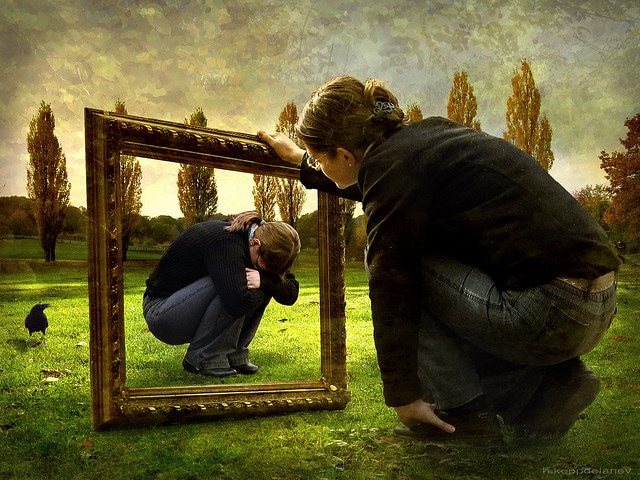

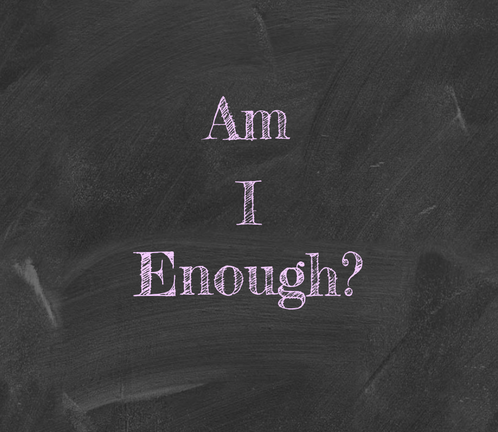
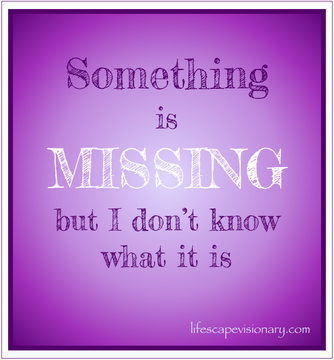



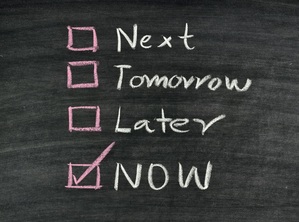

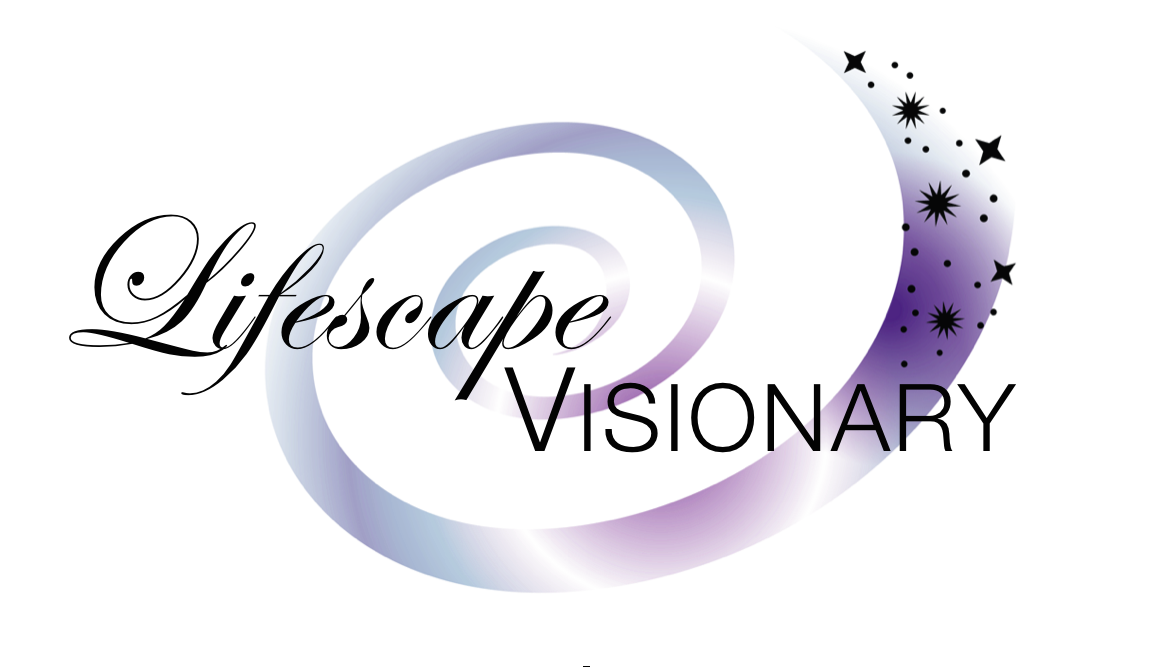
 RSS Feed
RSS Feed
